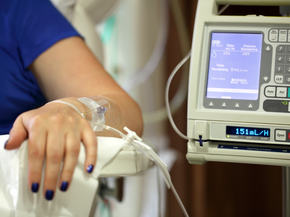Could It Be Sepsis?
Sepsis is a life-threatening response to infection that requires immediate emergency care. If it progresses to septic shock, it can lead to organ failure and even death. Most often, sepsis is caused by a bacterial infection—commonly from the skin (like a cut), lungs (such as pneumonia), kidneys, or digestive system (like E. coli).
Sepsis can develop quickly and affect anyone, at any age. Recognizing the signs and seeking prompt medical attention can save lives.
If you're concerned about sepsis, go to the hospital immediately. Tell them you are concerned about sepsis.









